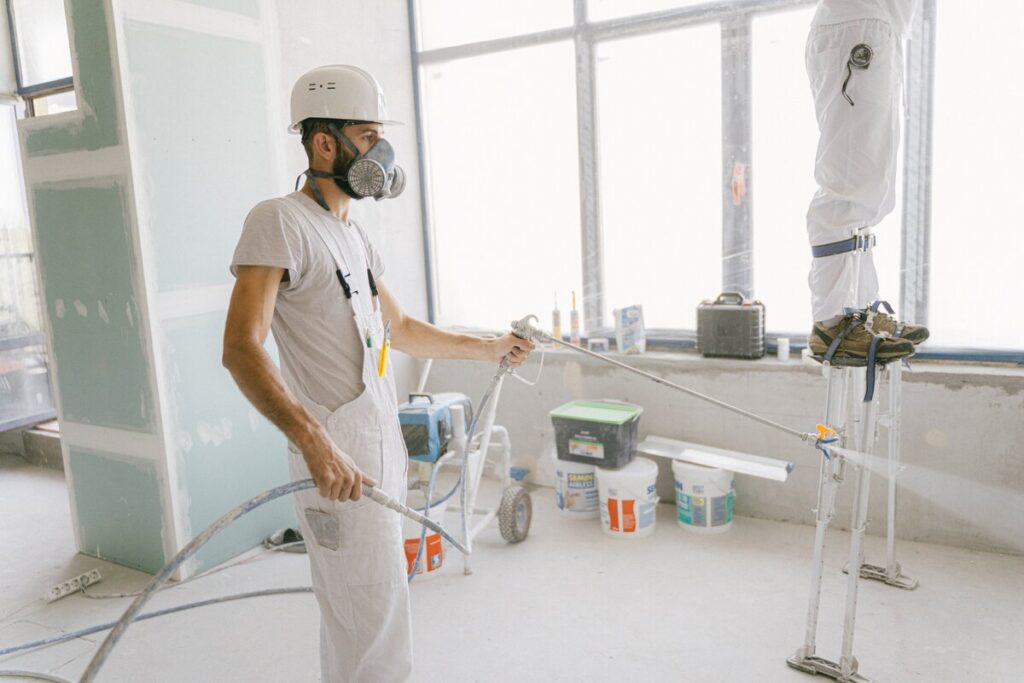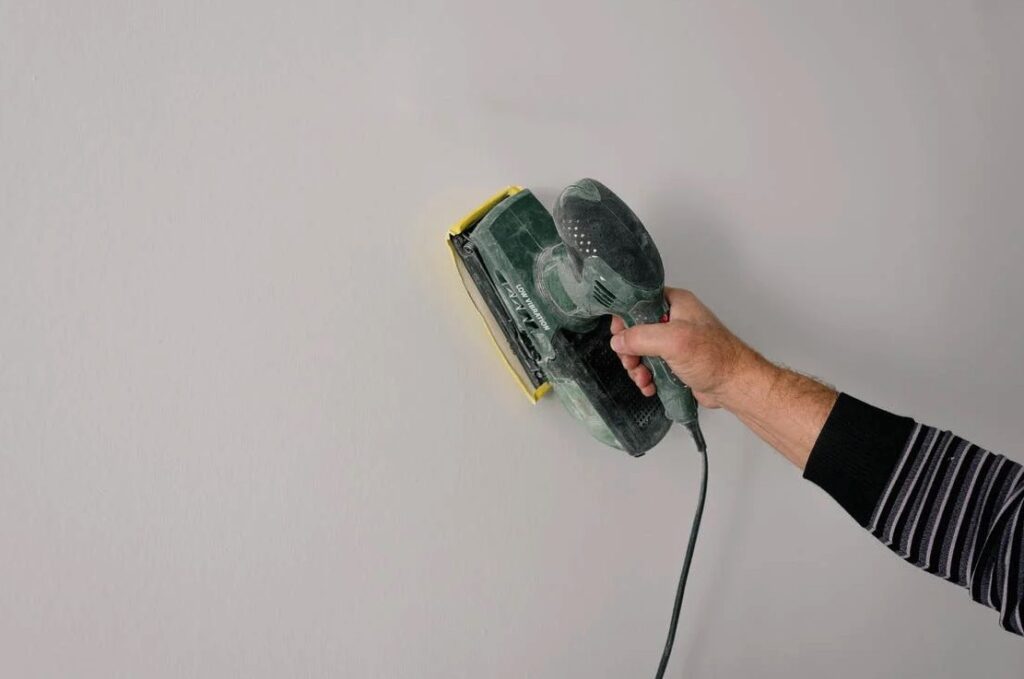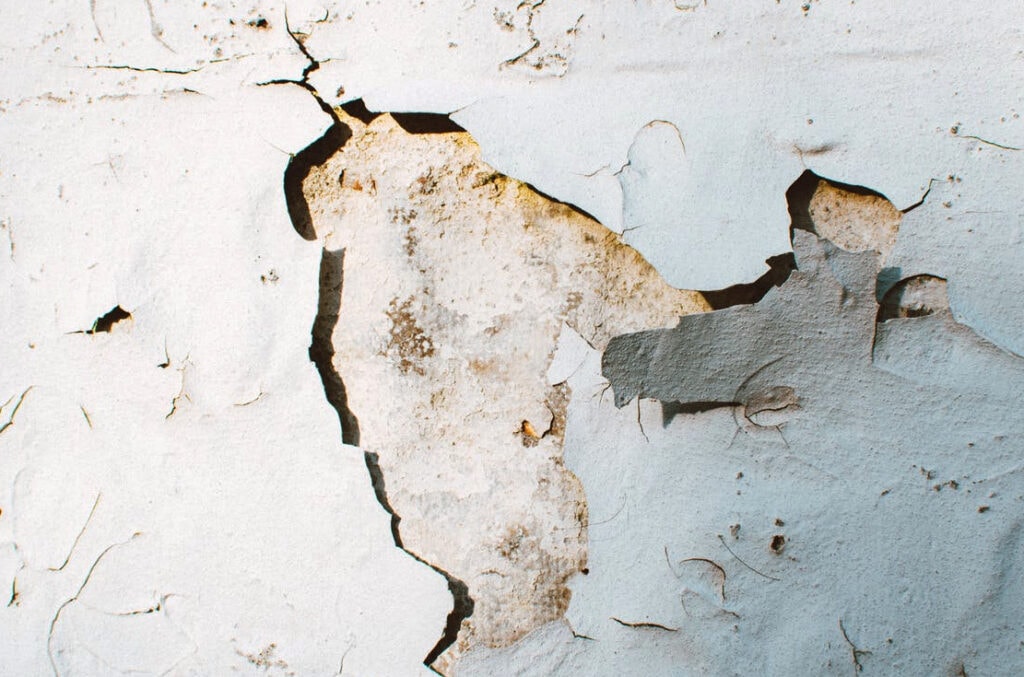If you have never had any plastering done before but are interested in learning more for a future job or project, read on!
To begin, know that a plasterer may specialise in either wet or dry plastering, depending on the client's needs.
To ensure the safety of the residents, house maintenance is a delicate but essential task.
A home's walls may become fragile and leak if they aren't properly maintained. When plaster on the walls cracks, water can seep in, which is why neglecting home maintenance can have disastrous effects.
Walls and partitions in buildings are typically constructed with dry wall plaster, commonly called plasterboard or Gyprock. Wet plaster is often applied to a wall with a trowel, whether the wall is located inside or outside.
Its ingredients list includes lime, cement, gypsum, and water. This can be used to make a smooth or textured painting surface over a brick or plasterboard wall.
When building a house, plastering is an essential step. It gives the house a nicer look while also making the walls stronger. However, the quality of the Gyprock is crucial in addition to the plastering technique.
In addition to helping in the construction or repair of walls, ceilings, and floors, plasterers can also design beautiful outside features.
Plastering is a broad phrase, and different plasterers may focus on different areas of the trade, so it's important to narrow your search. It is difficult to find a professional plasterer to employ, but doing so is essential if you want the job done well and affordably.
What You Should Know Before Hiring a Plasterer
Are you thinking about building a wall around the perimeter of your property? Should a ceiling be refinished? You should probably call a plasterer now.
As the name suggests, plasterers are skilled labourers who are conversant in all matters pertaining to plaster.
Painting is a simple task compared to plastering. In many cases, it's best to have a trained expert handle a job like this.
Plastering calls for ingenuity, precision, and expertise.
Plasterers have an ethical obligation to work swiftly and effectively to minimise any potential damage.
While a facelift is always welcome, there are several factors to consider before settling on a professional plasterer.
Although there may be hundreds of firms out there advertising their professional services, not all of them can be relied upon to provide exceptional results for their clients.
When plastering a building, a professional will always plan out the first steps before taking any action. A plasterer needs to have a clear plan for how he intends to complete the task at hand.
A plasterer also needs to think about other factors. For instance, the environment, climate, and house design strongly influence the choice of plaster that must be done and the methodology for doing so.
When a home is being built or remodelled, the plaster lays the groundwork; hiring the wrong one might lead to a number of problems. Because of this, it is prudent to seek out plaster services.

When could I use one, if ever?
The two main types of plastering techniques are solid plastering and fibrous plastering.
Plaster coatings can be applied by the method known as "solid plastering," which results in a uniformly smooth surface on walls, floors, and roads.
An extra line of defence is pebble dashing, which is done to the outside of a building.
Decorative plastering is also known as fibrous plastering. Decorative columns and ceiling roses, for instance, can be made with the use of moulds and design studios.
Plasterers and interior or exterior designers often collaborate on such projects due of the increased emphasis on design. A plasterer may be necessary if you need any of the following done:
- painting a wall or ceiling; fixing a wall or ceiling;
- covering a floor with screed, a sand-and-cement mixture;
- creating decorative accents like cornices;
- characterised by an external wall made of pebbles.
All of these common chores, as well as "dry lining," the term for constructing internal wall and floor partitions out of plasterboard, should be inside the scope of a plasterer's expertise.
While not every plasterer will offer this service, larger businesses will likely have several plasterers on staff and be able to handle any and all of your needs.
However, you shouldn't hire just anyone to plaster; you should always do your research before making a final decision.
Find the best and most reliable plasterer in the neighbourhood to help you enhance your property. In this article, we'll take a look at some helpful pointers for finding and hiring a plasterer:
The Importance of Counting Coats
Please don't use the one-coat plaster you saw in the hardware store, as tempting as it may have been. Why?
Putting on one coat of plaster might be sufficient for a little patch, but it won't give a job the finish it needs if it's any more than that.
If your walls are made of gypsum, the plasterers will likely apply two thin coats of the material. If you follow these instructions, your surface will be primed and ready for paint in no time.
Experience
If you're in the market for a plasterer, experience should be your top priority.
The work of a master plasterer and that of a beginner is night and day. It is important for a professional plasterer to have worked on a wide range of homes and to be comfortable with different types of plastering jobs.
Having done the job before, and with the benefit of some insider knowledge, makes their work easier and more efficient. In addition, they are quicker than a green plasterer to grasp the client's needs.
Find Out If They Have the Right Permits to Start Up Shop
To save yourself the trouble, just assume that any given tradesman "has all that stuff," rather than pressing them for evidence. But the truth is that not everyone agrees with this statement.
Hipages makes sure its service providers are legitimate by checking their credentials and making that information available to the public on their provider pages.
Although, before hiring a plasterer, you should verify their qualifications to make sure they are authorised to operate in your property.
The cost of your home construction in New South Wales (NSW) must be at least $5,000 (including GST) before you can apply for a building permit.
Reputation
You should look at the plasterer's background before hiring them.
Numerous consumers have complained in recent years that they engaged incompetent or inept builders who botched their projects.
There are numerous methods available for verifying someone's credibility.
For instance, others can investigate the quality of job being done online, and one can find out about the standing of one's neighbours, family, and friends. Inquiring about a plasterer's credibility through the first way is preferable to using the second.
Local Businesses
The primary challenge of using plaster services is the ensuing breakdown in communication. To avoid this, make sure the company you hire has a local office.
This facilitates better communication and allows for much more adaptability in time spent on work from each party.
Read Some of Their Old Stuff
You don't have to do any digging into the pasts of potential artisans to follow this advice, and it's simpler than it sounds.
Online galleries are a common way for companies to showcase the artistic abilities of their staff, and they are increasingly accessible.
It is recommended that you read reviews and testimonials written by actual customers if you are interested in learning more. Hipages aggregates customer reviews from Google and other review sites onto a company's profile.
Good service may typically be expected from licenced professionals who have gotten numerous positive reviews online. If, however, a service provider has a history of receiving low reviews, you should explore elsewhere.
Fee
The most crucial factor is confirming the contractor's or plasterer's price. It is important to ask the contractor or company providing plaster services for an estimate of the total price of the job.
All details of the project and any compensation offered must be made public before any employment is made. It's not wise to team up with a business that charges you an arm and a leg.
Perhaps you'll go with a company because its charges are roughly in line with what you had anticipated.
It's Not Enough to Rely on Just One Quote
It is crucial to receive at least three quotes for larger, more difficult work, even if you are short on time or worried about the difficulty. Why? You may be surprised to learn the diversity of prices charged by local plasterers.
Some talented labourers may demand higher wages because they take greater pride in their work and their expertise. Some companies may try to gauge customer interest by charging much more than their rivals.
Having at least three quotes to evaluate side by side can help you see how they compare and contrast, especially if you write down each quote in its entirety.
Warranty
Readers should keep in mind that reputable individuals or companies provide a comprehensive guarantee on the project.
We suggest that you go with a company that offers a comprehensive guarantee.
If something breaks, you can call the company and they will send someone out to fix it at no cost.
Always enquire about the warranty when meeting with a new plasterer or firm to ensure you choose the best one that can deliver both a high quality product and a reliable guarantee.
Constantly Setting Prices
Without knowing exactly what you need, no plastering company or plasterer can give you an accurate estimate. When you call a plaster expert, they'll take some measurements and offer you a price quote right there on the spot.
If you want to get the greatest price, it's best to talk to many different contractors and have them give you quotations after they've seen your home.
Doing so will help you avoid any hidden costs.
Then, you'll need to do some cost-benefit analysis to determine which one is best.
Timeliness and Deadlines in Projects
Be sure to ask a professional when they can start working on your project and how long it is expected to take.
Irreconcilable differences could arise, for instance, if they are so busy that they can't begin your job for several months.
Asking how many days or weeks your job could take would help you better understand the schedule. Ask for further information if they are being evasive about their timetable.
Can You Explain Why It's Better to Hire a Professional Instead of Doing It Yourself?
If you're only applying a little amount of plaster to a spot where looks aren't as critical, like an outdoor garage, you might be tempted to do it yourself. Plastering, for example, is a task that is not only physically demanding, but also demands a high level of competence, and so is usually well above the capacity of the normal homeowner.
If you don't feel confident or don't have any prior plastering knowledge, it's best to let the specialists handle the plastering (if not, you can always tell them you expect more and have them improve it). It's also possible that doing so might help you save a considerable amount of both time and money.
Further, a plasterer will have extensive training and understanding, will be able to finish the job much more rapidly than you can, and will give you peace of mind.
Also, you should be aware that you may be unqualified for a job because you lack the necessary tools or expertise.
The biggest advantage of hiring a plasterer versus doing it yourself is that you'll have someone to call if anything goes wrong in a few months. When compared to the cost of starting over completely, this is a major benefit in terms of both time and money.
Questions That You Should Ask a Plasterer?
- Can we expect several coats of paint on the wall? How many layers will you apply, if any?
- What kind of plaster will you be using, and will you be mixing it with sand or granules?
- Do you have a plan for removing the salt stains from the walls?
- What kind of plaster would you use if the walls were treated with a chemical to make them damp-proof?
- What plans do you have if you discover moist walls?
- Will you wait for it to dry out if there's moisture in the walls?
- In what time do you estimate you'll be able to plaster a room?
- After the plastering is done, do you guarantee that there will be no more leaks?
- Is it planned to plaster over top of already painted walls? Instead, the paint will be removed prior to the plaster being put on.
- If we use this plaster, will we be able to cut back on our energy consumption at home?
What Are My Options, and Where Do I Find One?
It can be challenging to locate a reliable plasterer in London. While the Yellow Pages may not be the first place you look for a plasterer, they do include ads. Unfortunately, you won't know the company's dependability, quality, or cost in advance.
Inquiring about the services of reliable, local neighbours is the finest option. It's always wise to enquire with one's neighbours.
You should also verify that the plasterer you employ carries up-to-date insurance that will cover any damage done to your property.
Moreover, to ensure the company won't disappear after completing your project, it's smart to verify that it has a permanent headquarters with a registered phone number and street address.
At the End of the Day, Finding a Plasterer to Hire Can Be Simple
Your house serves as an effective shield against the weather. You should take good care of your home because it is a valuable investment. If you are hiring a plasterer but have doubts about their skills, you can always look at their previous projects.
You might enquire with others whose homes the plasterer worked on to find out how satisfied they were with the service. Once you see the plasterer at work, all your doubts will go.
Be thorough in your questioning to ensure you hire the right person.
Conclusion
Wet or dry plastering competence relies on the client. Trowels apply wet plaster to walls indoors and out. Because plasterers have varied specialities, you must focus your search. Plasterers need a detailed plan to finish the work.
Plastering can be solid or fibrous.
Large companies have many plasterers to satisfy your needs. Prioritise hiring a skilled plasterer. Hipages checks service suppliers online. You need a permit if your home costs over $5,000 to build in New South Wales.
Plaster contractors should provide quotes.
Online-respected licenced specialists supply reliable assistance. If a service provider has bad internet reviews, search elsewhere. If you need more confidence or experience, hire a plasterer.
You may not be qualified for a job because you need the skills or equipment. But, on the other hand, it may need less effort.
Hiring a plasterer and overdoing it yourself is the biggest benefit. Ask the right questions to choose the right home improvement contractor. Ask your neighbours for ideas on trustworthy local service providers.
Content Summary
- To begin, know that a plasterer may specialise in wet or dry plastering, depending on the client's needs.
- To ensure the safety of the residents, house maintenance is a delicate but essential task.
- When building a house, plastering is an essential step.
- However, the quality of the Gyprock is crucial in addition to the plastering technique.
- It isn't easy to find a competent plasterer to employ but doing so is essential if you want the job done well and affordably.
- A plasterer needs to have a clear plan for how he intends to complete the task at hand.
- However, you shouldn't hire just anyone to plaster; you should always do your research before making a final decision.
- Find the best and most reliable plasterer in the neighbourhood to help you enhance your property.
- In this article, we'll look at some helpful pointers for finding and hiring a plasterer: Please don't use the one-coat plaster you saw in the hardware store, as tempting as it may have been.
- If you're in the market for a plasterer, the experience should be your top priority.
- It is important for a professional plasterer to have worked on a wide range of homes and to be comfortable with different types of plastering jobs.
- Although, before hiring a plasterer, you should verify their qualifications to ensure they are authorised to operate on your property.
- It would help if you looked at the plasterer's background before hiring them.
- Inquiring about a plasterer's credibility through the first way is preferable to using the second.
- The primary challenge of using plaster services is the ensuing breakdown in communication.
- To avoid this, ensure the company you hire has a local office.
- If, however, a service provider has a history of receiving low reviews, you should explore it elsewhere.
- The most crucial factor is confirming the contractor's or plasterer's price.
- It is important to ask the contractor or company providing plaster services for an estimate of the job's total price.
- It is crucial to receive at least three quotes for larger, more difficult work, even if you are short on time or worried about the difficulty.
- You may be surprised to learn the diversity of prices charged by local plasterers.
- Readers should remember that reputable individuals or companies provide a comprehensive guarantee on the project.
- We suggest that you go with a company that offers a comprehensive guarantee.
- A plastering company or plasterer can only give you an accurate estimate if you know exactly what you need.
- When you call a plaster expert, they'll take some measurements and offer you a price quote on the spot.
- Be sure to ask a professional when they can start working on your project and how long it is expected to take.
- Asking how many days or weeks your job could take would help you better understand the schedule.
- Ask for further information if they need to be more forthcoming about their timetable.
- If you need more confidence or have prior plastering knowledge, it's best to let the specialists handle the plastering (if not, you can always tell them you expect more and have them improve it).
- Further, a plasterer will have extensive training and understanding, will be able to finish the job much more rapidly than you can, and will give you peace of mind.
- Also, you should know that you may be unqualified for a job because you need more tools or expertise.
- The biggest advantage of hiring a plasterer versus doing it yourself is that you'll have someone to call if anything goes wrong in a few months.
- While the Yellow Pages may not be the first place you look for a plasterer, they include ads.
- You will know the company's dependability, quality, and cost in advance.
- Inquiring about the services of reliable, local neighbours is the finest option.
- It would help if you also verified that the plasterer you employ carries up-to-date insurance covering any damage to your property.
- It would help if you took good care of your home because it is a valuable investment.
- You can always look at their previous projects if you are hiring a plasterer but have doubts about their skills.
Frequently Asked Questions About Plasterer
Usually, two coats of PVA mixture will give you the best surface for skimming before plastering. Instead of PVA, you could also use a bonding agent. This product contains a fine aggregate making it gritty, and this helps to provide a stable surface for the plaster.
Plaster must be applied when a surface feels tacky but not too wet to help it bond to the surface well.
Over time, plaster may delaminate or become detached from the surface beneath. In the case of stud walls and ceilings, timber laths are fixed between the studs or joists and the plaster is pushed through the gaps between the laths. Rotten laths can result in plaster sagging or bowing.
If your home has plastered walls, then straight vertical cracks typically form when the plaster expands in humidity and shrinks as it dries. These are normal and are usually the type of cracks you'll find in a new build property.
We prefer to seal the distemper properly with an oil-based primer/sealer. Apply by brush/small roller (do not dilute), and once dry, we apply a strong sand-based pre-plastering bonding agent, which is ideal for this type of surface to give additional key/grip.



